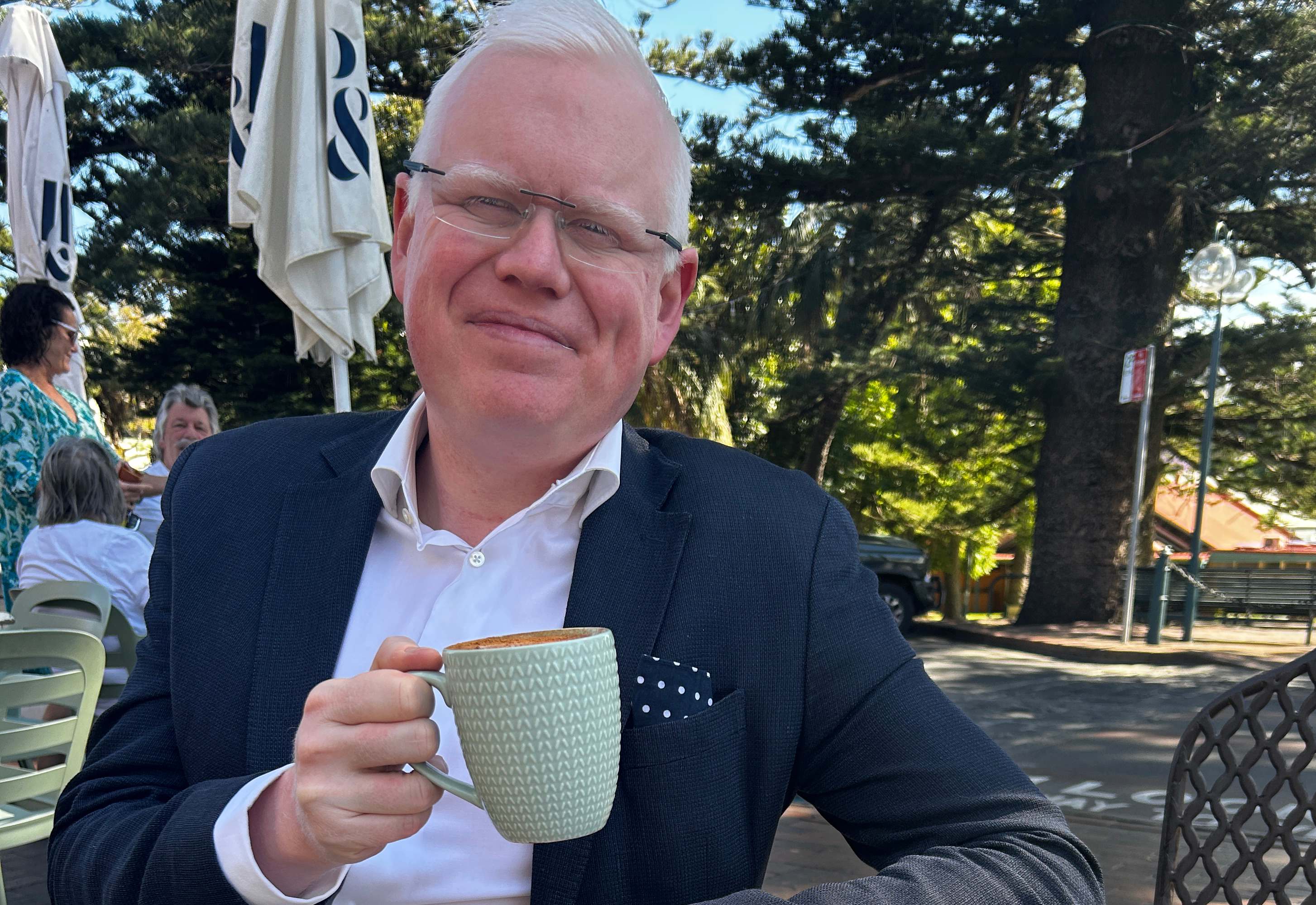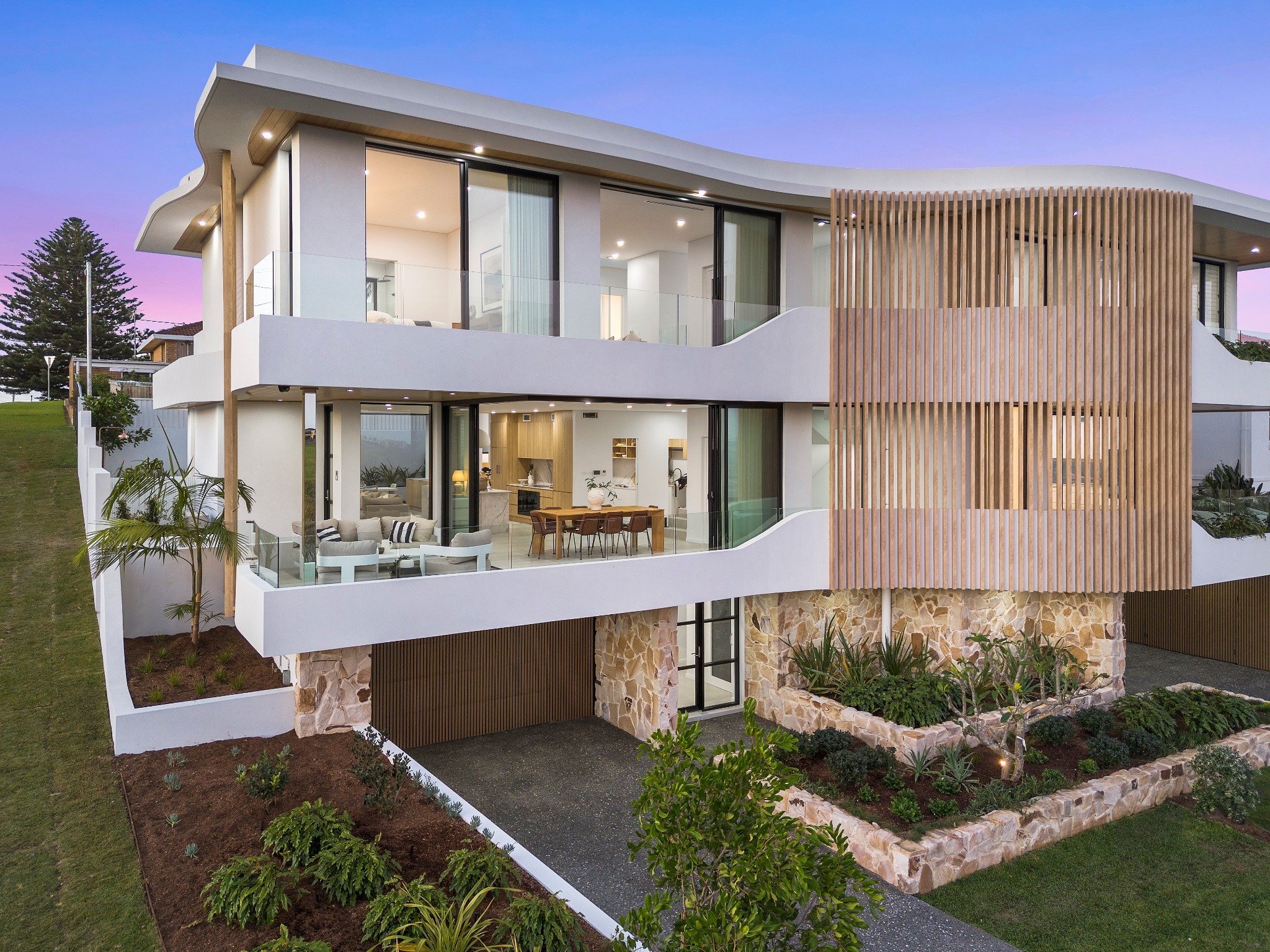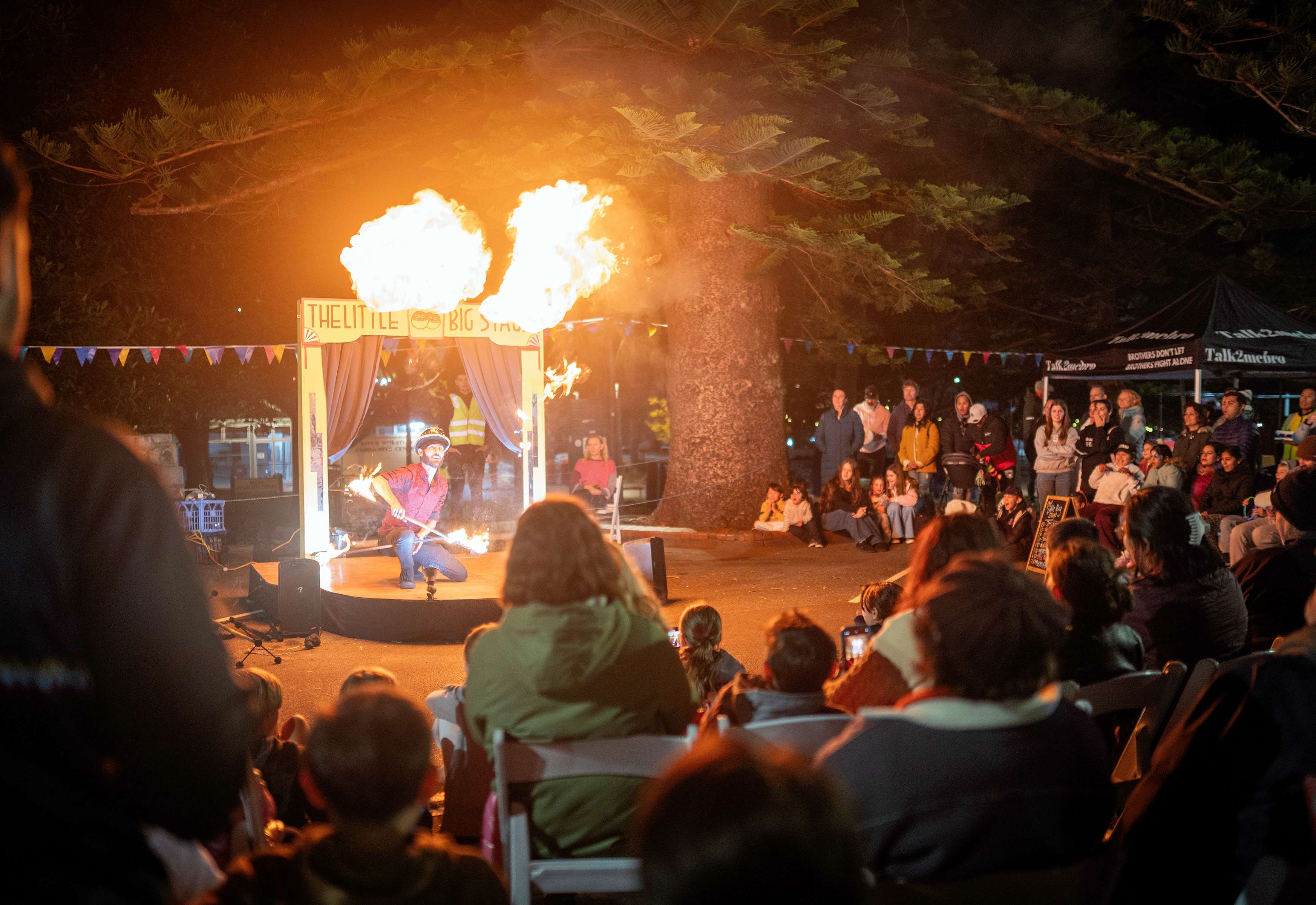Seeing sustainability clearly is the secret to Ozeano's success
Veronica Bardsley
20 July 2025, 3:00 AM
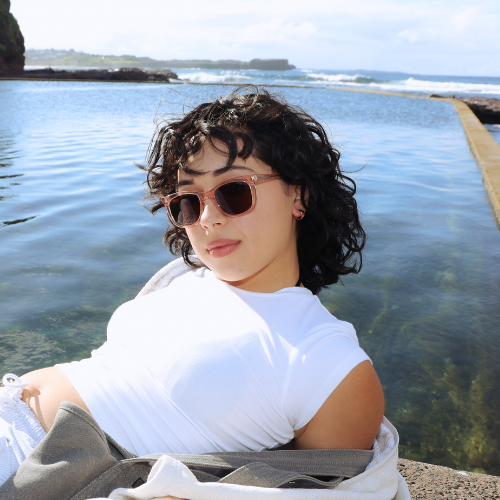 "Tama Coral" glasses from Ozeano Eyewear.
"Tama Coral" glasses from Ozeano Eyewear.Caroline Hartline is the force behind Kiama's quiet achiever.
Her eyewear brand, Ozeano Eyewear, stood out from the competition to win the "Excellence in Sustainable Business” award at the inaugural Kiama Business Awards recently.
With a 20-year professional background spanning corporate marketing, management consulting, non-profit leadership and eCommerce, Caroline brings a wealth of experience to the table.
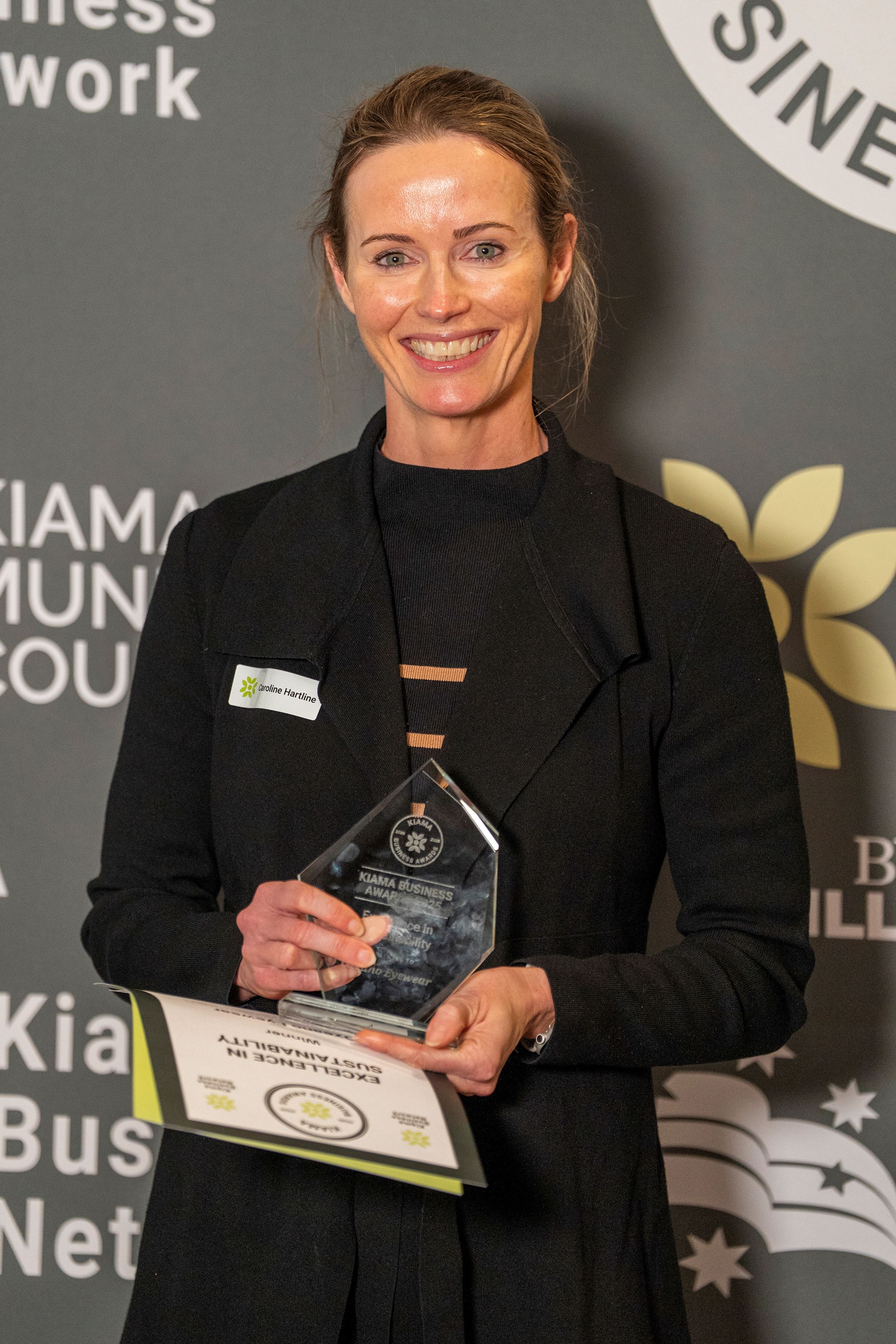
Caroline Hartline with her award for Excellence in Sustainability. Photo by Peter Izzard
Her broad expertise and passion for purpose-led business inspired her to take the leap and build something of her own.
In 2024, she acquired the assets of Ozeano Eyewear and set out to bring her vision of a sustainable, socially conscious brand to life.
As she describes it, her goal is “a new mission that gives back, more along the lines of a social enterprise.”
Ozeano Eyewear focuses on timeless designs, avoiding fast fashion trends to promote thoughtful consumption. The brand proudly supports environmental projects, including the Seabin Foundation, 1% for the Planet and the annual Ocean Film Festival.
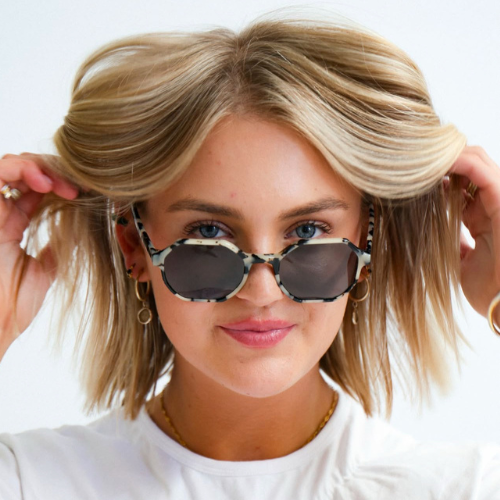
Indy wearing the 'Coolum Leopard Seal' glasses
A new line of plastic-free eyewear accessories is also set to launch soon.
Even with their promise to sustainability, they have made an effort to remain affordable without compromising on quality. In fact, the materials used in Ozeano eyewear surpass those found in many products on the market that sell for up to three times the price.
For Caroline, building a sustainably focused business was never in question.
“I love small business but never wanted to be responsible for additional landfill as a result of running a business,” she explains.
Giving back has always been part of her ethos - she has worked with organisations such as the United Nations in Jordan, as well as the Australian Red Cross and The Salvation Army.
“I’ve always been interested in humanitarian work and the environment but I also just have a general dislike for plastic. And once you dive deep and realise the havoc it wreaks on the environment and on the human body, it’s hard to overlook,” she said.
Upon receiving the award for Most Sustainable Business, Caroline expressed genuine surprise.
“I was very shocked to receive the award! It’s genuinely humbling as we are really such a little business and therefore, our impact is quite small.
“It’s also a huge morale boost as often the hours put in the business aren’t reflected in the profits.”
She also has practical advice for other businesses looking to prioritise sustainability:
1. Start with your packaging.
“Sustainable packaging is not only better for the environment but customers also appreciate it when your packaging can be put in the yellow or green bins instead of clogging up their red bin!”
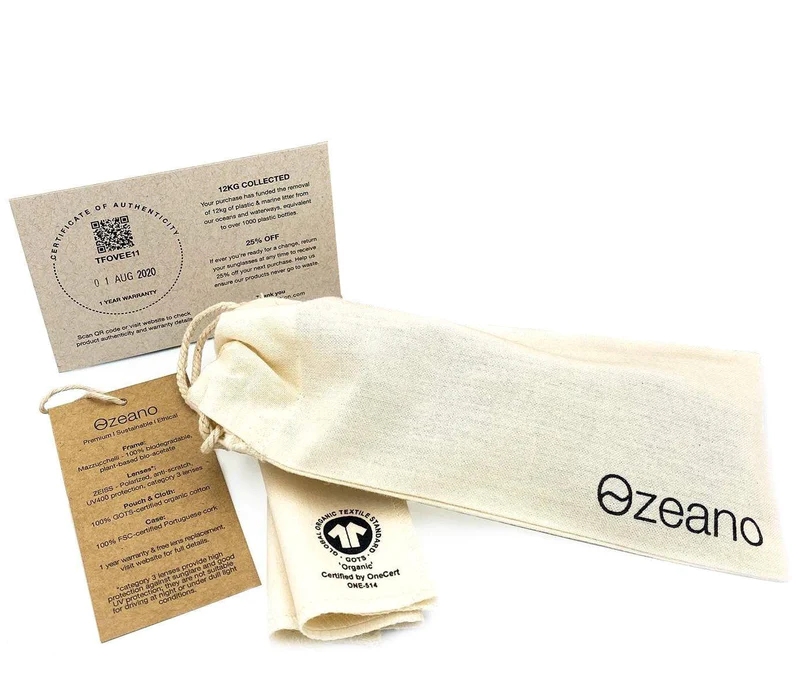
Ozeano Eyewear's sustainable packaging
2. Review your supply chain.
“If you’re selling products, have a look at your supply chain - who makes the products, what their sustainability certifications are and whether they’ve had any third-party audits like BSCI or Sedex.”
3. Dig deeper into your materials.
“Who supplies the materials/textiles that make up the products and how sustainable are these materials? Seek out certifications like Oeko-Tex or FSC, GOTS (for organic cotton) and GRS (Global Recycling Standard). Ask your suppliers and manufacturers how they’re transporting their products to you (often it’s in a lot of unnecessary plastic wrapping). They can switch to no plastic, use cloth, or there are also many cost-effective bio-based biodegradable plastic alternatives available these days (for garment bags, for example).”
4. Create a sustainability policy.
“It’s a good idea to draft and adopt a sustainability policy for your business including an ethical supplier and sourcing policy. You can get input from staff and also use it as a working document to show you areas for improvement. I’d be happy to provide any local businesses with advice around this.”
5. Think beyond recycled plastic and share your journey.
“Sustainability means different things to different people but for me, I think it’s about getting back to natural materials where possible.
“I think there is a bit of a ‘recycled plastic’ trend going on at the moment but I question how sustainable it really is - because it’s still leaching microplastics into the environment and impacting human health. And then you have the issue about how traceable it really is.
“Clothing and eyewear made of plastic bottles doesn’t impress me too much because it still creates a toxic product and a reliance on plastic use. Some people argue that plastic is more durable, but durability is a double-edged sword - it takes centuries to break down, shedding microplastics into the soil and ocean in the process.
“Customers are increasingly choosing brands that reflect their values, so even small steps can build loyalty and impact. And importantly - share your progress honestly. It’s OK not to be perfect.”
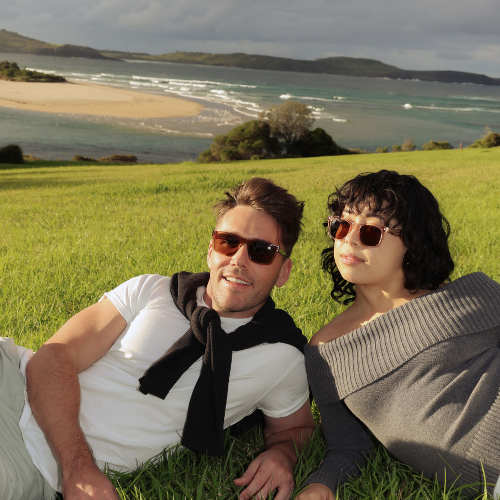
James & Zara wearing Ozeano glasses'in Minnamurra
The main message Caroline wants to share is every choice matters. “Whether you’re a business owner, a parent, a student, the way we consume and produce things shapes the world we live in.
“I would encourage people to look at the tags of their favourite brands, how much polyester and nylon are in the clothes and how much plastic is used in its packaging. And also consider - can I wear this item for years to come?
“We are so blessed to be surrounded by so much beautiful water and ocean here in the Kiama area. It’s not going to last though at the rate we’re consuming and producing plastic.”
Caroline isn’t slowing down anytime soon. Next month, she will be launching a new business for kids and teens called Billie Green, offering undergarments made without any polyester or nylon in the fabrics, the new range will follow the same sustainable principles.
To step up your eyewear fashion and support a local, sustainable business, visit the website here or find them on display at The Collective Kiama and regularly at the Kiama Seaside Markets.
NEWS
